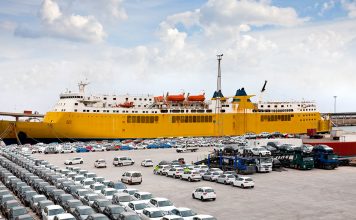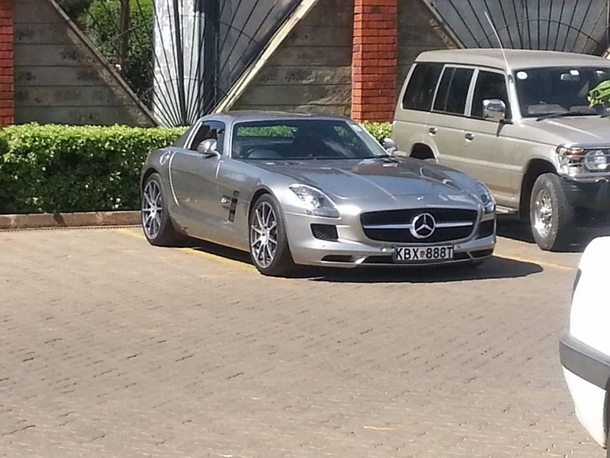Kenyan authorities have unmasked a syndicate that has been cloning number plates and fraudulently registering cars for sale.
Police on Wednesday arrested 19 employees of the National Transport and Safety Authority (NTSA) in a bid to smash the number plate-cloning ring, believed to be aiding terrorists.
The racket, comprising officials attached to the licensing, information technology, inspection and the registration of Motor Vehicles departments of the NTSA, has been helping criminals to duplicate number plates for stolen vehicles and those used for criminal activities.
The security agents raided the NTSA offices in Nairobi’s Upper Hill to find out how the ring operates and eventually prosecute those involved in a crime that helped terrorists to stage the 14 Riverside Drive attack that led to the loss of 21 lives.
The Flying Squad had revealed that the number plate of the Toyota Ractis (KCN 340E) believed to have been used by the attackers was not a fake, but a duplicate of an existing one.
Another car of the same make and similar description was impounded on January 16 in Kitengela, a town some 30km south of Nairobi. It had the original number plate.
The raid took place as an official at the NTSA was charged over the registration of the vehicle used by the attackers.
Collusion
Investigators told the Nation that brokers within the NTSA act as links between criminal gangs and employees of the motor vehicle registry.
Once a broker is contacted by a gang, he requests for a duplicate number plate. The registrar then finds a vehicle owned and operated by someone in a different town.
“For example, if someone in Nairobi wants a cloned number plate, the registrar will find a vehicle whose owner is in Mandera, Garissa, Mombasa, Kisumu or anywhere far from the city.
“He will also ensure that the number plate of the car is not on the police radar, or somewhere in a police station,” the investigator said.
The vehicle specifications are then extracted from the owner’s logbook on the NTSA website, including colour, chassis/frame number, year of manufacture, transfer number, owner’s name, make, body type and other details.
A copy of the owner’s ID is also downloaded from the website by the insider.
“Once these have been extracted, the details are handed to the person who made the request. They then make a fake logbook elsewhere, go to a police station to get an abstract for a damaged or lost number plate and then go back to the NTSA to apply for the number plates,” the source said.
At the NTSA, the ring helps the applicant apply for a new number plate for a fee, depending on how many people within the authority were involved in the process.
Staff at the Kenya Revenue Authority provide the details of the previous owner.
Thereafter, the insider again liaises with the vehicle inspection department to get a certificate without having an inspection done.
He also links the “owner” of the car with an insurance broker to obtain a sticker — mostly, just a month’s.
“This is because the electronic inspection always detects when the vehicle’s chassis number is different from the one in the logbook,” he said.
Uganda, Rwanda car imports
In just the past three weeks, the Flying Squad has impounded 26 vehicles with duplicate number plates.
A source familiar with the syndicate described the ring as a tax evasion racket.
“Vehicles imported for destinations such as Uganda and Rwanda are diverted to the Kenyan market and registered with illegally acquired plates and logbooks, saving the owners hundreds of thousands of shillings in taxes,” he said.
He estimated that five vehicles are registered in this way everyday.
A victim of the cartel, Mr Anthony Macharia Waweru, who was summoned to the Flying Squad offices in Nairobi, told the Nation that he had travelled from Nakuru, a town 160km northeast of the capital, after officers informed him that a duplicate number plate of a car he bought in 2016 had been found.
“I got scared when I received the call. I was told they needed to verify which of the number plates was genuine. I was too frightened to even drive my car because I did not know what to expect,” Mr Waweru said.
Investigations revealed that the Toyota Harrier, imported from Japan in 2016, was destined for South Sudan. It had a duplicate number plate.
Flying Squad boss Musa Yego says fake and cloned number plates are becoming increasingly common.
“If NTSA electronically rearranged the number plates and worked with insurance companies and the police, the insurance companies and KRA, these cases will reduce,” he said.
Automation
Mr Yego said the greatest challenge to the detectives was that most of the stolen vehicles, or those with duplicate number plates, were taken to far-flung towns, where they are sold to unsuspecting people.
Some are even sold in neighbouring countries. “If vehicles were fitted with electronic number plates, as has been proposed before, the cases might decrease. We will be able to tell the location of a specific vehicle,” Mr Yego said.
Currently, the Flying Squad is working with the NTSA such that the police can key the registration number of a vehicle into an automatic number plate recognition application and it sends the vehicle specifications to them.
But the challenge is that when crooks give vehicle details to thieves and smugglers, a duplicate plate is mounted on a vehicle that closely resembles the original one.
He cautioned the public to thoroughly research a potential purchase.
SOURCE: theeastafrican.co.ke



![Top 20 Used Cars to Avoid Buying in Kenya – [PHOTOS]](../../../blog/wp-content/uploads/2013/11/top-used-unreliable-cars-to-avoid2-80x60.jpg)


![Here are some of the best tuned cars in kenya by state of the art garages [PHOTOS]](../../../blog/wp-content/uploads/2013/11/29402_10151301757042065_340470732_n-e1384498044289.jpg)

![Top 20 Used Cars to Avoid Buying in Kenya – [PHOTOS]](../../../blog/wp-content/uploads/2013/11/top-used-unreliable-cars-to-avoid2-100x70.jpg)



